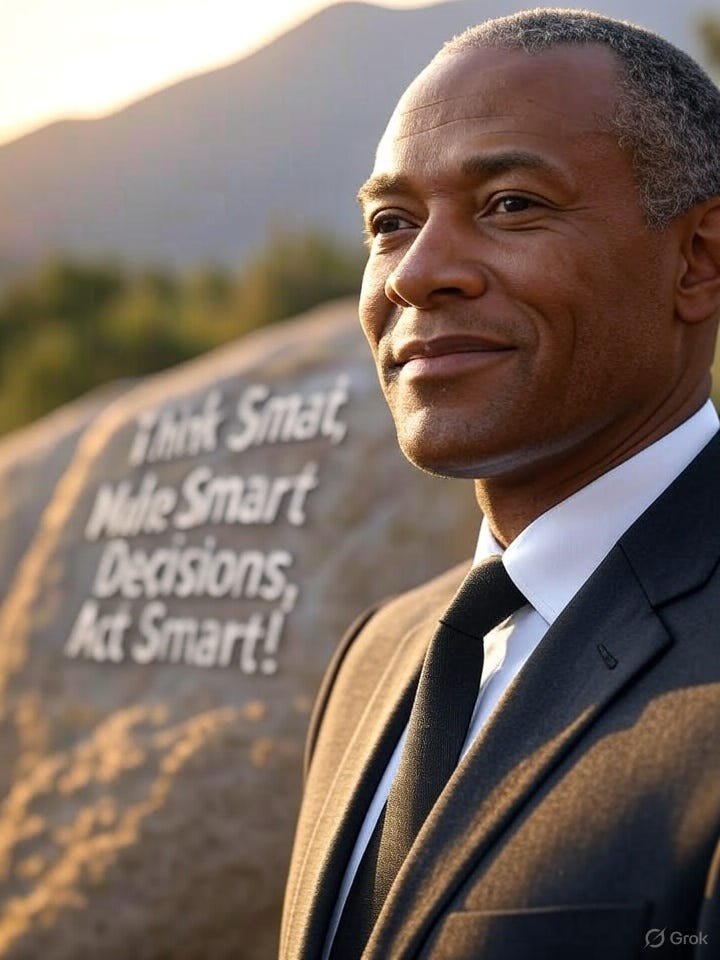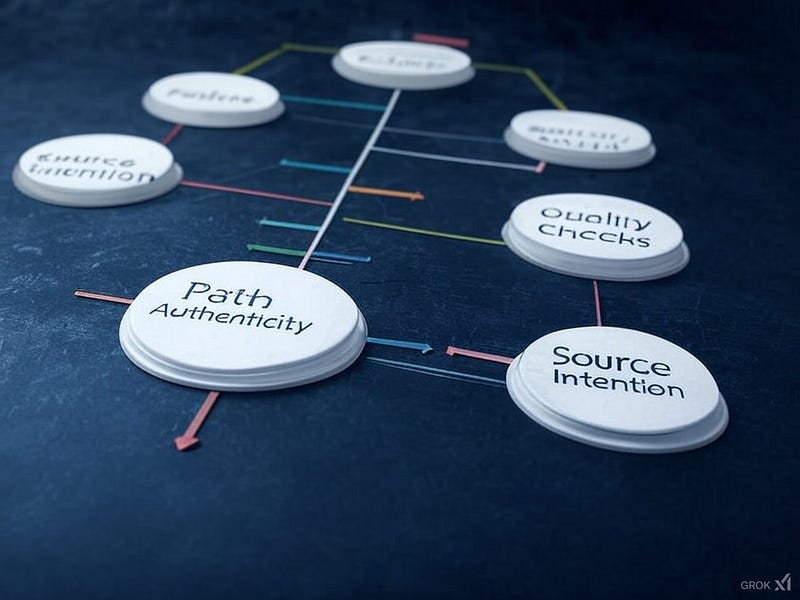
People of African descent are scattered across the world, especially in several European countries such as the United Kingdom, France, Australia and Germany as well as the Americas because of various reasons including the search for better education and economic opportunities, while others are former slaves and asylum seekers.
Regardless of where you live now and the circumstances which led you or your ancestors out of the motherland, it is important for you to understand and remember that you must always Think Smart, Make Smart Decisions and Act Smart in the pursuit of your dreams.
Being a smart thinker who makes good decisions while pursuing noble acts is no longer a mere choice for the African child but a prerogative that must be embraced with honor and vigilance.

You must always strive to improve your critical thinking, decision-making and problem-solving skills by reading widely as well as by adopting decision making frameworks and models such as the Smart Decision Toolkit, Eisenhower Matrix, SWOT Analysis and The Pareto Principle etc.
This helps you to easily, methodically and tactically follow your passions while also inspiring current and future generations to wash away their ignorance and inferiority complex which has perplexed them for centuries.
Smart decision-making is premised on understanding the fact that there is a link between people’s reality and the way how they think and make decisions.
Whether you want to do something in a rush because you believe its urgent, or you are taking your time to do something important, you must always remember the following:
1) Thinking is an important skill that must be developed.
2) Decision making is an art that must be mastered.

Failure to develop your thinking and decision-making skills can cause you a lot of avoidable problems since there are people in this world who invest their mind, time, energy and resources in ensuring that they influence your thoughts and decisions to their benefit at your expense.
Everything happening in this world is a result of what and how people think, and thus, THINKING must be clearly understood.
Thinking in its basic form simply refers to the logical processing and interpretation of INFORMATION. It helps you to identify things that may affect your decisions and to also see how your decisions may affect other things that are important to you.
Regardless of the type and gravity of the decision you want to make, you must always remember that — decisions are choices, judgements or determinations that you make after considering several factors and options based on the information you have about a particular subject.
Your decision must be an outcome of looking at something from different angles and weighing available options followed by choosing the best option after considering several factors.
If you do not pay attention to these issues, you can succumb to the bait of unscrupulous and manipulative crooked individuals who take advantage of other people’s ignorance.
Unfortunately, as a victim of such unethical people, you are likely to experience serious negative even though the bad decision which resulted in such an outcome was not intentional.
Decisions are largely influenced by the way you gather, interpret and process information, it means you must strive to improve your reading, listening and comprehension skills.
You must endeavour to learn and adopt effective information gathering techniques and to master the art of processing and analysing any piece of information which you come across in order to establish its correctness/truthfulness and relevance.

Every piece of information which you use in making decisions must be correct, and thus, you must always be on the lookout for information which is nicely packaged and yet false. Don’t always judge a book by its cover since not everything that glitters is gold!
Information As a Decision Quality Determinant:
1) Information/Data Interpretation — the way information is arranged, packaged, and transmitted determines how you interpret it, and the way how you interpret it determines the quality of decisions that you make, and the action that you will take.
2) Predominant Sources of Information/Data — Education, Religion, Parenting, Past Experiences, and Dreams as well as Gossip (Grapevine), Intelligence Service, Propaganda, Culture and Tradition etc. are some of the most predominant sources of information which you have about yourself and about the world around you.
3) The Impact of Sources of Information — sources of information influence and determine what you consider to be good/bad or what you consider to be right/wrong. They also determine what you choose to do and what you choose to ignore.
People who can think and act smart makes it easy for their fellows to succeed, be it at school, at work or at home, and thus, it is your duty, whether in a family, organisation or community to embrace smart thoughts, smart decisions and good deeds so.
Seven Things to Remember About the Effect/Impact of Your Decisions:
1) Good decision-making is largely dependent on your ability to think smart (effectively process and interpret data) than on your profound desire to achieve better outcomes.
2) Every decision is based on the information you have about the subject you are dealing with as well as about yourself and the world around you.
3) Good decisions are results of exposure to correct information acted upon by an objective and open mind. When you use wrong information, you will make a wrong (bad) decision. Ignorance is not an excuse!
4) Smart decisions result in positive outcomes while foolish decisions result in negative outcomes.
5) An enlightened stable mind leads to smart decisions while an excited/emotionally unstable mind leads to foolish decisions.
6) You can have good intentions and still make a bad decision. It’s possible to make bad decisions even though your intentions are good.
You can mean no harm and yet still cause harm to yourself or to other people around you, including your loved ones.
7) When you un-intentionally make a bad decision, you unfortunately suffer the consequences of bad decisions rather than to enjoy the benefits of having good intentions.
Adapted from The Smart Decision Handbook written by Brian Kazungu.


